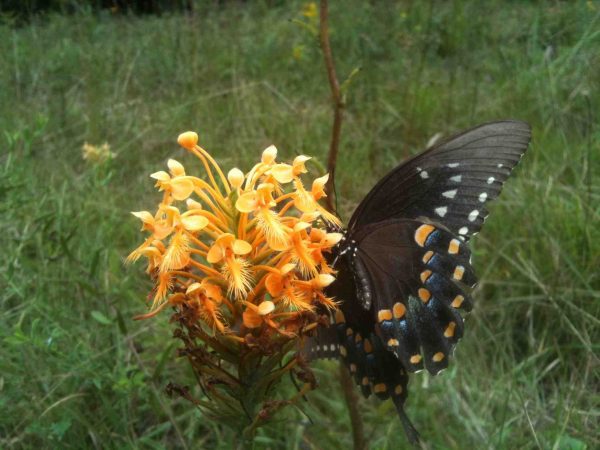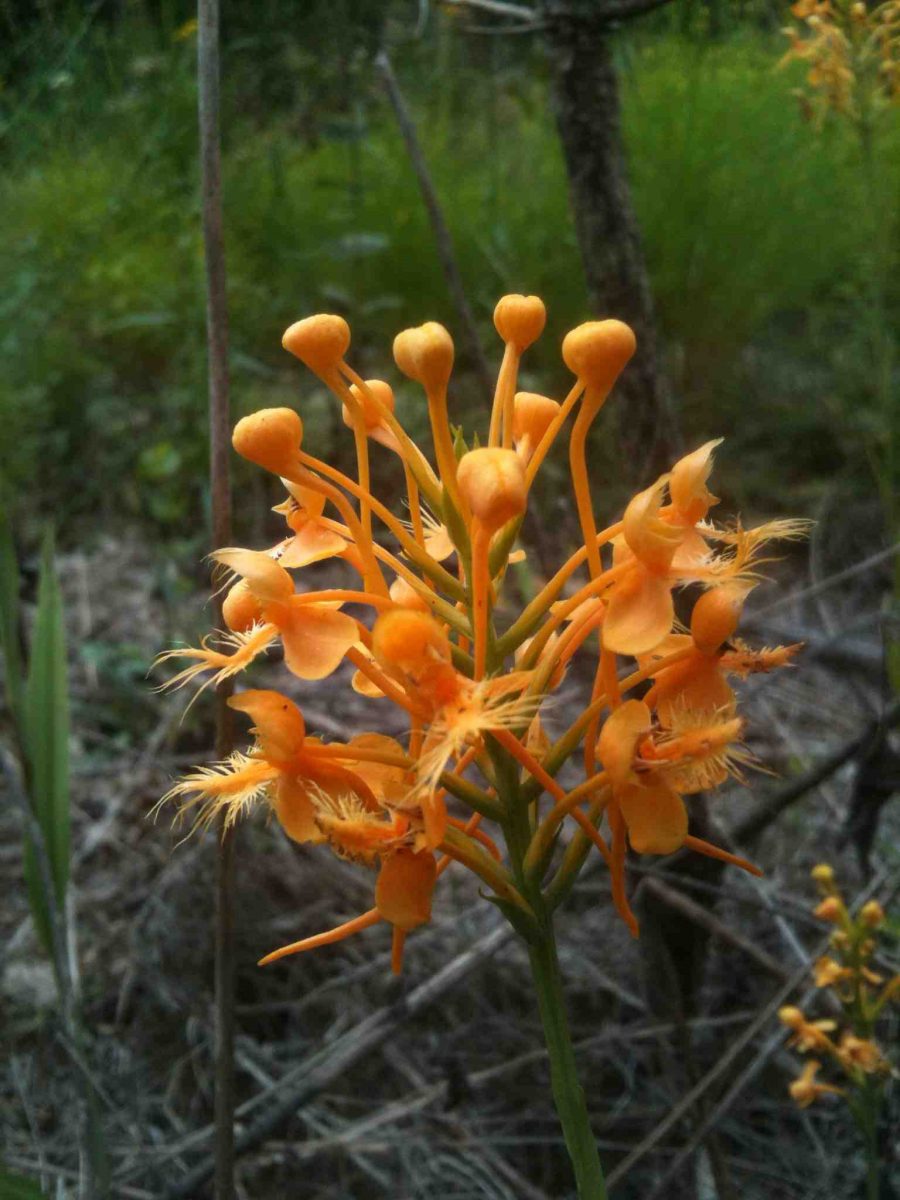Yellow-fringed orchids

This wet summer has brought out a number of wildflowers we rarely see, or at least not in great numbers. Recently, I saw one of my favorites blooming en masse in Montgomery County – the yellow-fringed orchid. This beautiful wildflower blooms from late June to early September, so they were just past peak but I managed to get a few nice photos.
T he yellow-fringed orchid (Platanthera ciliaris) is a showy species of orchid that can grow as large as three feet tall, with clustered flowers that have distinctive fringed lips and a spur on the back that is filled with nectar. As many as 50 individual blooms may comprise the cluster, which itself may be as large as six inches. Yellow is a bit of a misnomer, as it is really more of a bright orange, and as a result is sometimes called an orange-fringed orchid.
he yellow-fringed orchid (Platanthera ciliaris) is a showy species of orchid that can grow as large as three feet tall, with clustered flowers that have distinctive fringed lips and a spur on the back that is filled with nectar. As many as 50 individual blooms may comprise the cluster, which itself may be as large as six inches. Yellow is a bit of a misnomer, as it is really more of a bright orange, and as a result is sometimes called an orange-fringed orchid.
Their range is in the eastern United States from Florida up, and they are even found in some portions of lower Canada. In North Carolina, this is yet another species that is typically found in the mountains and coast, but can be seen blooming in some of our Uwharrie forests as well. They sometimes hybridize with the white-fringed orchid, resulting in a flower with a pale orange bloom.
Yellow-fringed orchids are pollinated by butterflies, and predominantly by swallowtails. These unique and uncommon plants are at-risk in some areas from habitat loss and over-collecting, and are listed as state endangered in Michigan.
They are usually found in acidic soils, and prefer moist and boggy habitats. They are frequently found in longleaf pine forests. Considered a fire-dependent species, they need open sunlight and fire keeps down competition. They are a species that does not bloom every year, particularly if the quality of their habitat decreases, but could easily be found blooming once again if fire is introduced.
If you are interested in learning how you might be able to manage your forest to increase diversity and possibly spot some new and interesting species such as this one, you may want to check out a neat and free workshop being hosted by the N.C. Wildlife Resources Commission (WRC) on Managing Your Forestland for Multiple Objectives.
This workshop will take place at the Catawba College Center for the Environment in Salisbury on September 20 from 9:00 a.m. to 4:00 p.m., and will include information on managing for your objectives, creating a management plan, and conservation agencies and the assistance they offer, with a field trip in the afternoon. To register or for more information, contact Brooke Massa with N.C. Wildlife Resources Commission, 919-707-0054.